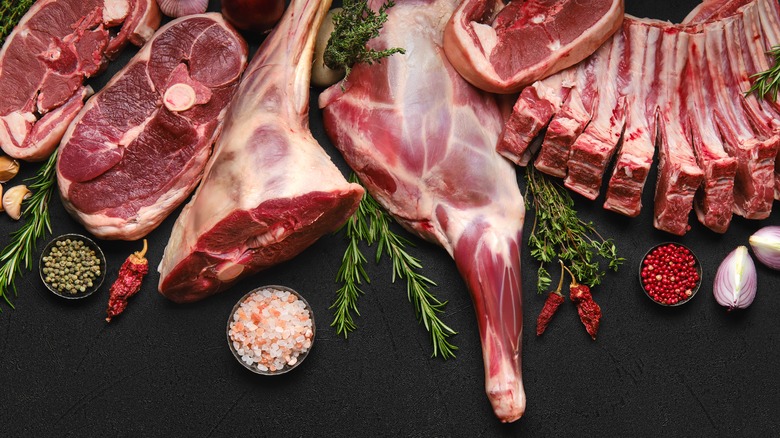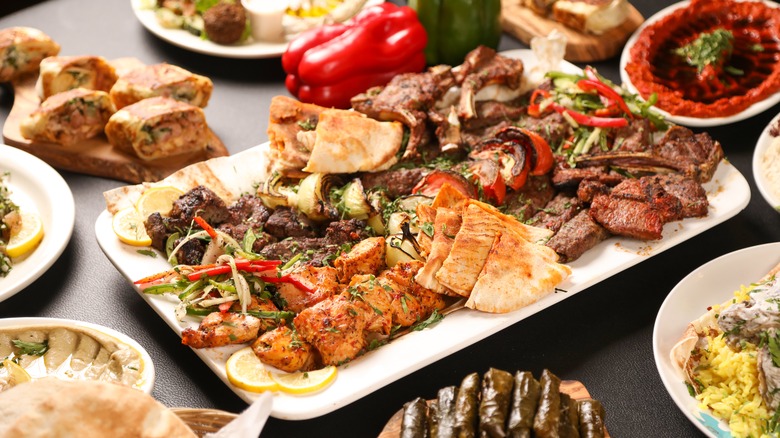What Counts As Halal Meat, Explained
With the world's various cultural backgrounds, religious customs, and time-honored traditions, our global dining scene is a true feast for the senses. Amidst this flavorful tapestry, one's dining practices and food preferences often sway to the tune of one's upbringing. Still, even if you didn't grow up regularly eating halal, you may have encountered the term before and might have even seen or once tried its food. But what does "halal" really mean?
The term is derived from the Arabic word for "permissible," and halal foods include dishes that are acceptable in Islamic law as laid out by the Quran. It's all about what's allowed and what's off-limits. Any food that complies with Islamic law is deemed halal, while its forbidden counterparts are known as "haram."
When it comes to meat, going halal means steering clear of any forbidden cuts, like the hindquarters, and pork. Fish, chicken, beef, venison, and game birds make the cut, while pigs and reptiles are left out of halal considerations.
Achieving the coveted halal stamp actually takes more
To achieve halal status, meat and poultry must be slaughtered according to Islamic dietary laws known as Zabihah. This process requires using a sharp instrument to cut the animal's throat swiftly, striving for humane slaughter. Only lively and healthy animals are selected, with every drop of blood meticulously drained to ensure freshness. Additionally, a halal animal should be raised on pure, by-product-free diets. Accompanying the process is the tasmiya or shahada — a dedicated recitation honoring Allah — which can be performed by Muslims or People of the Book (Christians and Jews).
If you want to partake in halal-approved delights, steer clear of forbidden foods such as pork (including ham, bacon, and related sausages), non-halal-slaughtered animal meats, any meat or plant-based alternative made from alcohol components or animal shortening, and blood-infused delicacies like blood pudding. Notably, many devout Muslims also find kosher meat acceptable.

